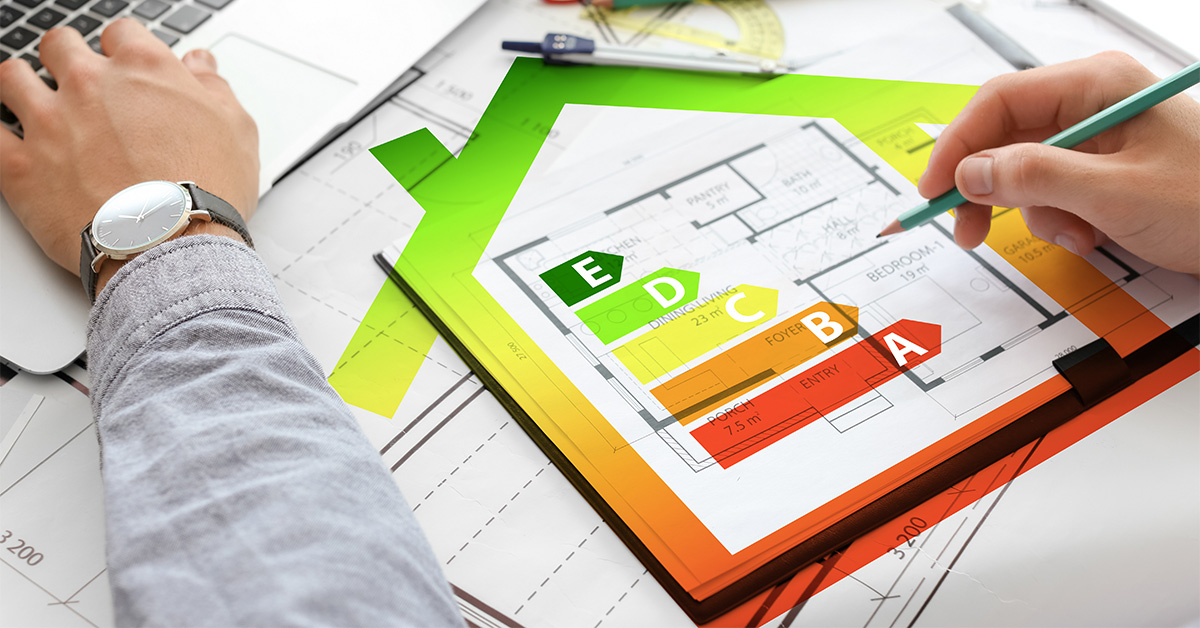Homeowners who want to improve the energy efficiency of their homes may find that a home equity loan is an excellent way to finance these upgrades. A home equity loan is a type of loan that uses the equity you have built up in your home as collateral. It can be a smart option if you need to borrow significant money for home improvements. Here are some ideas and tips on how to use a home equity loan to improve your home’s energy efficiency.
1 Get an Energy Audit
Before you start planning your energy-efficient upgrades, you should get an energy audit of your home. An energy audit will tell you where you are losing energy in your home and what upgrades will be the most effective at reducing your energy bills. Some utility companies offer free energy audits to their customers, but you can also hire a professional auditor to do the job. The auditor will test your home for air leaks, insulation levels, and HVAC efficiency and provide a detailed report on how to improve your home’s energy efficiency.
2 Upgrade Insulation
One of the most effective ways to improve your home’s energy efficiency is by upgrading your insulation. Insulation helps keep your home warm in the winter and cool in the summer by preventing air from escaping. You can use a home equity loan to upgrade your insulation by adding more insulation to your attic or walls or replacing old insulation with newer, more efficient materials. In addition, some insulation upgrades may be eligible for tax credits, such as the installation of insulation with a higher R-value.
3 Replace Windows and Doors
Windows and doors are other significant sources of energy loss in many homes. If your windows and doors are old or poorly sealed, you may lose a lot of energy. Upgrading to more energy-efficient windows and doors can greatly affect your energy bills. You can use a home equity loan to replace your windows and doors with new, more efficient models. In addition, some energy-efficient windows and doors may be eligible for tax credits.
4 Upgrade HVAC Systems
Heating and cooling your home accounts for a significant portion of your energy bills. Upgrading your HVAC system can help you save money on energy bills while improving your home’s comfort. You can use a home equity loan to upgrade your HVAC system by replacing your old furnace or air conditioner with a newer, more efficient model. In addition, consider installing a programmable thermostat, which can help you save money by automatically adjusting the temperature in your home based on your schedule.
5 Install Solar Panels
If you want a more substantial energy-efficient upgrade, consider installing solar panels. Solar panels can help you generate electricity, significantly reducing your energy bills. You can use a home equity loan to install solar panels on your roof or yard. In addition to the savings on your energy bills, you may be eligible for tax credits for installing solar panels.
6 Other Energy-Efficient Upgrades
You can make many other energy-efficient upgrades to your home using a home equity loan. For example, you can install energy-efficient lighting, upgrade your appliances to more efficient models, or install a water heater with a higher efficiency rating. Some of these upgrades may be eligible for tax credits, so check with your tax professional.
Use a Home Equity loan for energy-efficient home upgrades
Using a home equity loan to make energy-efficient upgrades to your home can be a wise investment. Not only can these upgrades help you save money on your energy bills, but they can also increase the value of your home. Before you start any upgrades, get an energy audit to determine which upgrades will be the most effective. Also, check with your tax professional to see which upgrades may be eligible for tax credits.
Guthrie Community Credit Union offers members low fixed-rate home equity loans with no closing costs.* Tap to learn the details of a Guthrie home equity loan and a variable rate HELOC.
Disclaimer
*Closing costs are waived unless the loan is discharged within 3 years of the origination date in which case you will be required to pay closing costs, which consist of the following: title search, flood determination, recording fees and appraisal. Subject to membership, credit and property approval. New York State mortgage taxes do apply. Some restrictions apply.

